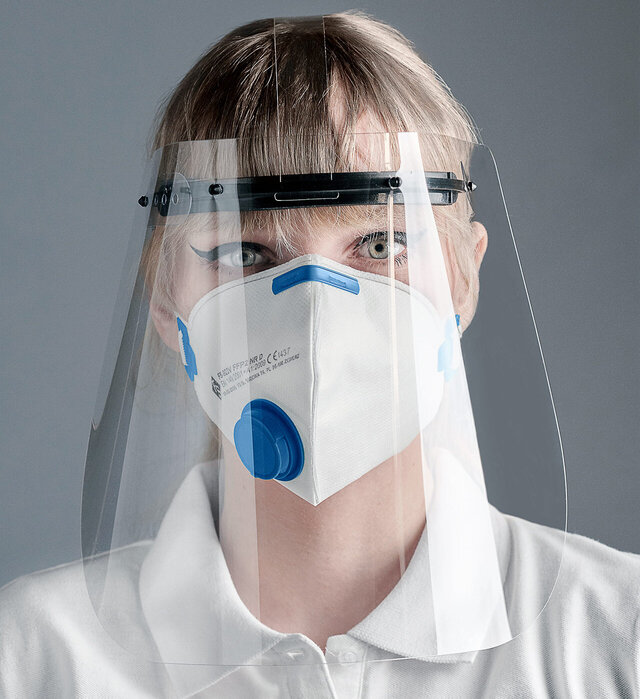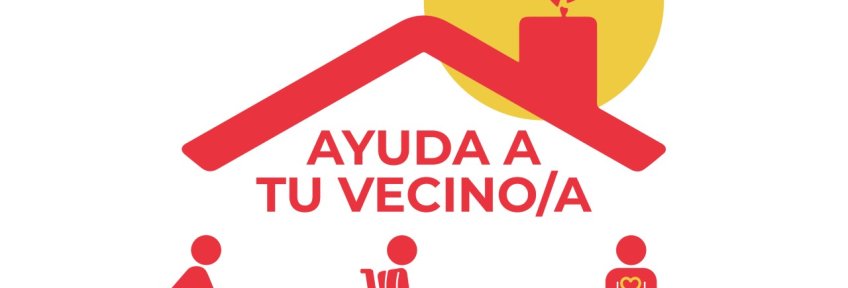Innovative response
The General Directorate of Civil Protection and Emergencies, in collaboration with the Spanish Red Cross, has launched the #YoHagoPorTi campaign, aimed at promoting behaviours that foster solidarity with the neighbours who need it most: elderly, sick or disabled people. In this campaign, we are encouraged to mobilize for them. The 10 essential actions are proposed to protect ourselves and protect them, as well as promoting the initiative of maintaining telephone contact with elderly people or those people who live alone.
The most vulnerable people to the pandemic are those who need assistance. This initiative tries to promote people's solidarity, providing 2 types of help:
• Telephone support, worrying about and asking if they are well or need something.
• Personal assistance, in case they need help to shopping at the supermarket or go to the pharmacy. Always carrying out this action in safety conditions, for both, those who help and those who need help.
Little things that will help them face better with this situation, and detecting possible frauds in their environment.
In short, it is about helping the elderly, sick or disabled people, and transmit affections and support to our most vulnerable neighbours in these times of adversity. They will appreciate to know that we care about them and that we are willing to support them.
Specific issues addressed and anticipated impact
Specific Issue: Spain has a fairly elder population, so the group of people most vulnerable to the pandemic (elderly, sick and people with disabilities) is high.
The State of Alert declaration in the country has supposed the containment of the population, leaving a part of the needs that the most vulnerable had to cover, such as shopping or going to the pharmacy.
Appealing to the family and neighbours solidarity , this campaign was created to invited families to call and care for elderly and live alone people, as well as to collaborate with your neighbours in case they have to shop at supermarket or go to the pharmacy.
Covering the needs of the most vulnerable was the objective of this joint campaign of the General Directorate of Civil Protection and Emergencies and the Red Cross, because going out to the street represented an additional risk that could be solved with the help of the closest people. In addition, encourage phone calls during confinement to the elderly and people who live alone maintain contact with other people and they do not feel isolated.
The expected impact was to provide information to the population about the need to help the most vulnerable people, improving their situation in case of they were afraid to go out on the street or to be alone, and, on the other hand, to give exit to solidarity and the desire to help of certain people who saw a profit in the helpers actions carried out.
Organisations/institutions involved
• General Directorate of Civil Protection and y Emergencies (Ministry of Interior) Spain.
• Spanish Red Cross
Potential issues
The campaign is focus on the whole population, which is why it has been made known through social media, digital press and the media:
• A video with information about the campaign has been broadcast on national public television, but it is true that it could also have been broadcast through private television, which would have increased the scope of the information.
• Social Media have been our main means of access to people through our official twitter account, but it is true that we must be aware and be cautious with the risks of transmitting information on social media, especially to detect fake news about the campaign or trolls that try to discredit the information.
• The campaign has been carried out quickly to be available from the first days of confinement, so it has not turned out as well as we would have liked. We must take into account this lesson learned and anticipate the needs that may arise.
- National/Federal government
Issues being addressed:
- Information and practice sharing (with public and/or internal)
- Crowdsourcing solutions
- Social effects of the crisis
Response contact:
Response tags:
Social SolidarityDate Submitted:
25 May 2020


